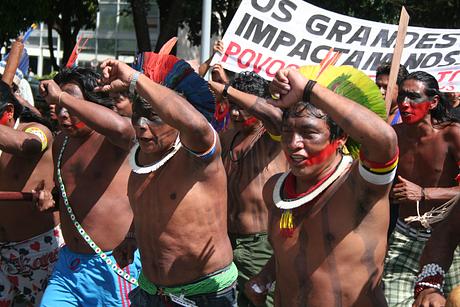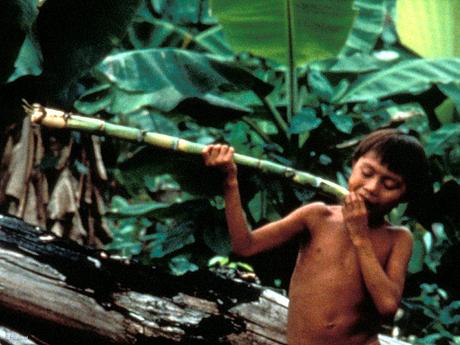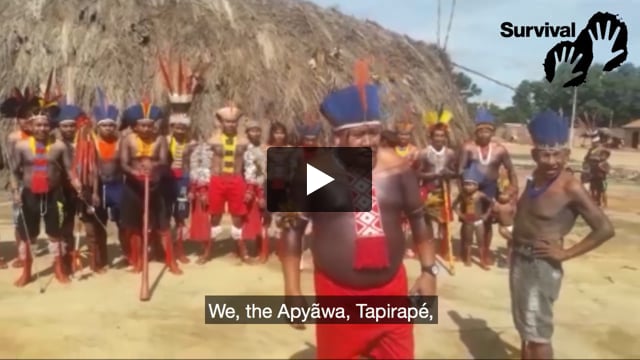Hundreds of Brazilian Indians set up protest camp in capital
May 14, 2011
 © CIMI/Survival
© CIMI/SurvivalThis page was last updated in 2011 and may contain language which is now outdated.
Over 700 Brazilian Indians from more than 230 tribes set up camp last week in the country’s capital city, Brasília, to urge the government to respect their rights.
Outraged by the advance of large scale infrastructure projects which threaten to devastate their land, the Indians marched, chanted and debated in the streets, calling on the government to act fast to prevent this destruction.
The Madeira dams, currently being built in the Amazon, are putting immense pressure on uncontacted Indians’ lands as migrants are arriving in the area and deforestation is increasing. The uncontacted Indians rely on their forest to survive and any form of contact with outsiders could be fatal for them.
The Belo Monte dam planned for the Xingu river in the Amazon threatens the livelihoods of thousands of tribal people, who have not given their consent for the dam to be built.
The protestors stated in an open letter, ‘We will not allow our Mother Earth, which we have been preserving for millennia and which contributes to the social and environmental sustainability of our country and of the world, to be torn away from us yet again, or destroyed irrationally’.
Last month, the Inter-American Commission on Human Rights called on the Brazilian government to suspend the Belo Monte project, but Brazil’s President Dilma Rousseff has refused to do so, and ordered an immediate break in the country’s relationship with the Commission.
Guarani Indians at the camp warned that the government is proceeding extremely slowly with its program to map out the tribe’s ancestral land, and that meanwhile, thousands of Guarani are living in overcrowded reserves or on the sides of main roads.
The current boom in sugarcane and ethanol production is of particular concern to the Guarani, some of whom have seen their lands taken over by sugarcane plantations.
Survival International is calling on energy giant Shell and its joint venture partner in Brazil, Cosan, to stop using sugarcane planted on the Guarani’s ancestral land to produce ethanol.




